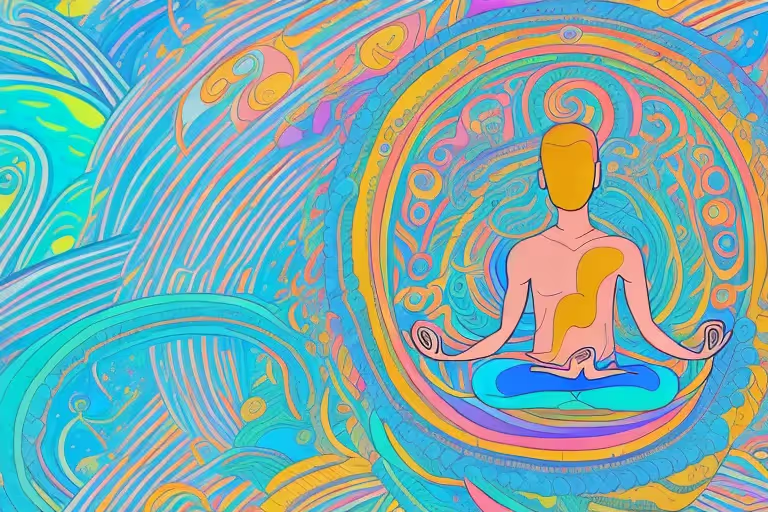Social anxiety disorder is when people feel intense fear or anxiety in social situations. This often manifests as fear of judgment or ridicule, fear of humiliation, and/or physical symptoms such as sweating and blushing or a rapid heartbeat. Those who have suffered from social anxiety know that it can be all-consuming. For the socially anxious, however, there is hope. Cognitive behavioral therapy (CBT) and mindfulness techniques can support daily stress reduction and offer a new perspective on fear as it arises.
In this article, I'll discuss the real impacts of social anxiety, how mindfulness meditation and mindfulness practices daily can help. I also explore how they complement cognitive behavioral therapy and provide insights anyone can use to feel more authentic and comfortable in social situations.
Impact on Daily Life
Social anxiety can hinder personal and professional relationships by placing a barrier between the person suffering and other people. It often leads to avoidance of social interactions and a general lack of self-compassion. I remember when I suffered from anxiety, I was very hard on myself, thinking that it was my fault that I was overreacting. This, in turn, made the anxiety worse. With social anxiety, there is the added worry over what others are thinking.
For this reason, social anxiety can take a lot of mental bandwidth. It can also lead to a lack of focus, rumination, additional anxiety disorders, and even social phobia. Without intervention, it can feel like a spiral of negative thinking, but there are tools.
The Role of Mindfulness
What is Mindfulness?
Mindfulness is not only being present and fully engaged in the current moment, it means showing compassion to self and others by adopting a non-judgmental awareness of thoughts and feelings. For instance, if you feel a wave of negative emotion, you could beat yourself up with a line of thinking that goes something like: "I shouldn't be upset. I need to be calm."
With a more mindful approach, you would recognize the anxious emotion with compassion, simply labeling it. "I am feeling anxious," then becoming curious about what that truly feels like. What sensations accompany anxiety for you? What do you feel in your body, and what is the automatic response? Watch with a curious and present spirit. In other words, often the mindfulness cure for anxiety is to allow yourself to be anxious.
Mindfulness and Social Anxiety
Mindfulness helps in reducing excessive worry about social scenarios as well. If you are in a social situation, like a party, and you feel uncomfortable or exposed, begin to focus on the anxiety symptoms by labeling and becoming curious about them. Are you sweating? Is your heart rate picking up? As you take mindful breaths, continue to notice; instead of asking why, accept what is and begin to take a more present stance by simply bringing your attention back to the breath.
Mindfulness-based stress reduction (MBSR) has been proven very effective in treating stress and anxiety, including social anxiety, solely because it is built on acceptance of self and surroundings. Once we learn to accept ourselves more fully, we also understand and better empathize with others.
Mindfulness can also be a good starting point for cognitive behavioral techniques, such as reframing our thoughts. One such technique might be to feel the emotions of anxiety and get curious about how that is different from the emotions you feel when excited. Rather than trying to trick yourself, you are simply feeling into what is and gaining distance from the stories we attach to labels.
Meditations for Social Anxiety
Guided Meditations
Guided mindfulness meditations and breath practices alike can be powerful tools for supporting the relief of social anxiety because they help to focus attention and relax persistent anxious thoughts. There are many mindfulness meditations at Aura and other wellness apps, so it is important to find the one that resonates for you. Social anxiety symptoms often do not show up when we have time to meditate, but we can visualize situations and prepare for social situations with meditation. In the moment, we can rely on mindfulness techniques and cognitive reframing.
Benefits of Meditation for Social Anxiety
Does Mindfulness Meditation Help with Social Anxiety?
With regular practice of mindfulness meditation, you can lower stress and anxiety levels. According to The National Social Anxiety Center, these practices also improve emotional regulation and resilience. In the long term, mindfulness and mindful meditation combat anxious thoughts and enhance overall well-being and mental health. There can be a positive outlook on your social interactions, and you can have a future in which you can be at ease with others and yourself.
It is not your tasks to cure yourself of something as serious as a social anxiety disorder, but these techniques are of great support as you embark on your healing journey. Determining your therapeutic plan is important and finding a therapist who can guide you through these practices will help you make mindfulness and cognitive behavioral therapy part of your routine. Ultimately, they become as automatic or more automatic than the anxiety. You can bolster your efforts by practicing mindfulness and mindful meditation for a few minutes daily. Start as an experiment, and take note of the shifts in your perspective. You may find yourself calmer and more content in social situations than you could've ever imagined.
Below are a few resources that will support you with anxiety through mindful focus and awareness:
- How to Sit With Uncomfortable Feelings and Process Emotions
- The RAIN Mindfulness Technique, a short meditation.
- Why Meditation for Anxiety? Unlocking the Benefits
- Aura Health App, a library of meditations, mindfulness practices, hypnosis, and music.



.webp)







.avif)

%20(1).avif)


.avif)
.avif)
.webp)


.avif)


















































































































.avif)

















.svg)









